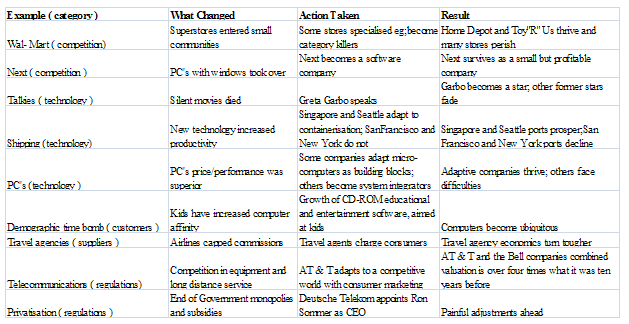Advent of Electronic Mass Media on Readerís Digest
Article by author Fathima Reshma Taj HThe advent of technology like television and Internet disrupted the whole of publishing industry during the 1970s and 1990s. Even till date the print media has not been successful in fighting out the situation. Most of the publishing companies failed to adapt to the changing time and became the victim of the technological advancements. Though the print form has remained in use since 500 years, there has been a cultural shift in the reading habits especially in the younger population. Many publishing companies went bankrupt in the year 2008Ė2009 due to the technological advances coupled with the weak economic situation. One among them was the 87 year old iconic brandĖReaderís Digest.
Readerís Digest was a magazine built on the concept of providing condensing articles. The idea was conceived by its founder DeWitt Wallace during the pre-television, Radio or Internet era. It was a kind of luxury provided to the quick reader as it covered variety of topics that could be read in less time. It still is a famous magazine with the global presence in 44 countries with wide product portfolio. It was the most sought after magazines of the times because of its unique size.
Readerís Digest was complacent with its past success so much that it could not sense the technological changes taking place in the publishing industry and for a long time denied to acknowledge the threat of these changes. The technological changes posed a threat to the market share of the company resulting in profit decline. The companyís successive managements were engrossed in the cost saving strategies and were not alert to the changing market conditions. By the time management realised that they had missed the strategic point, it was too late. All the measures taken by the company to adopt technology turned futile as they were not taken at the right time and had become ineffective.
It has been noticed that, if any technological innovation happens, there are always those who are left behind. Technology keeps changing constantly and does not stand still and hence the only solution is to adapt change and move along. Again not all the changes that happen in the industry are critical to the organisation. To know what is critical, companies have to be alert to the external changes, sense the changes and interpret the changes in the right way Ė whether it is a critical to the company or not. By saying critical, I mean that the business model of the company that used to do wonders to the company may not hold relevant in the changed scenario. This changed scenario may be the revolution that has set in and changed the dynamics of the industry.
A change that brings revolution into the industry is called a Strategic Inflection Point (Exhibit I). Every industry be it a publishing, tele-communication, retail or shipping, has gone through this stage at some point during the lifetime of the company (Exhibit II)

Source : The CEO Refresher, http://www.refresher.com/!paranoid.html
 Source: Groove. S. Andrew, Only the Paranoid Survive, Profile Books Ltd., (ISBN 1-86197-513-9), page 77
Source: Groove. S. Andrew, Only the Paranoid Survive, Profile Books Ltd., (ISBN 1-86197-513-9), page 77
The publishing industry also has to learn from other sectors to adapt the changes taking place in the industry to attract the younger generations to consume and read books. It needs to embrace change and technological advancements that is taking place in the industry. The immediate effect would be that there would be no monopoly of few publishing companies in the industry as the digital content is available at a free or minimum price and with wide geographic accessibility making it which makes it affordable to each one. It can be said that the digitisation has been a strategic inflection point for the publishing industry and it needs to adapt itself to this change. Else the chances are that, the companies which miss it, might perish in due course of time.
Related Case Studies
Video Interviews
-
 Gurcharan Das
Gurcharan Das
Speaks on India @ 75, Business Education in India, Corporate Governance & CSR -
 Viren Wilfred Rasquinha
Viren Wilfred Rasquinha
Speaks on Executive Education & Sports Managment in India -
 Edward Cohen
Edward Cohen
Speaks on Managing Organizational Trauma - more Video Interviews»
Executive Interviews
-
 Mark W Johnson
Mark W Johnson
Speaks on Business Model Innovation -
 John A Davis
John A Davis
Speaks on Family Businesses -
 Gary David
Gary David
Speaks on Multicultural Teams -
 Roger L Martin
Roger L Martin
Speaks on Corporate Social Responsibility -
 Michael Beer
Michael Beer
Speaks on Change Management - more Executive Interviews »
Case Study Books
-
 Business Models - Vol.1
Business Models - Vol.1
Highlights how important a Business Model is to survive evolving markets in the world. This casebook also entails the primary elements and characteristics of a company`s business model through illustrative case studies. -
 Business Models - Vol.2
Business Models - Vol.2
Is the existing business model viable enough to survive? When should a company look for a new business model? This case book helps to identify and analyse such issues with examples of case studies. -
 Competitive Strategies - Vol. II
Competitive Strategies - Vol. II
Focuses on the strategies, which assumes an all-important role in the wake of competition. Without competition, strategy has no relevance -
 New Age Marketing Ė Vol. I
New Age Marketing Ė Vol. I
Provides insights into understanding the marketing strategies adopted by various companies and the efforts made by them to overcome these challenges. -
 Managing Innovation - Vol. I
Managing Innovation - Vol. I
Provides insights into the conditions that have given birth to some of the most revolutionary innovations of modern times and the important role played by the top management in nurturing an Ďinnovative organisationí. - more Case Study Books